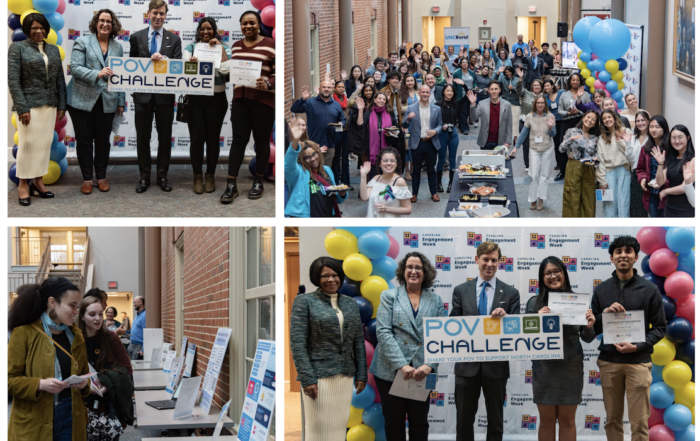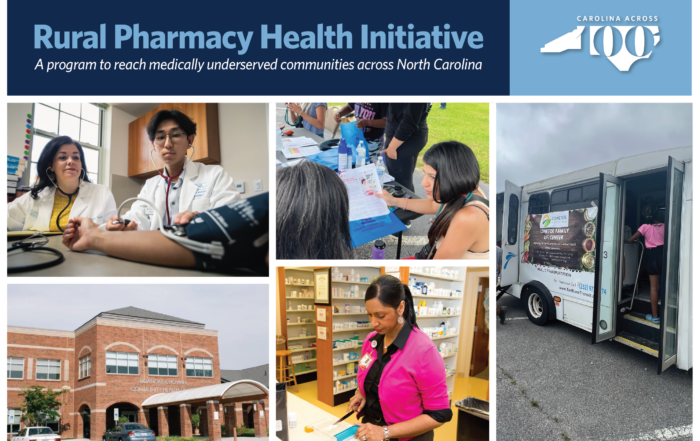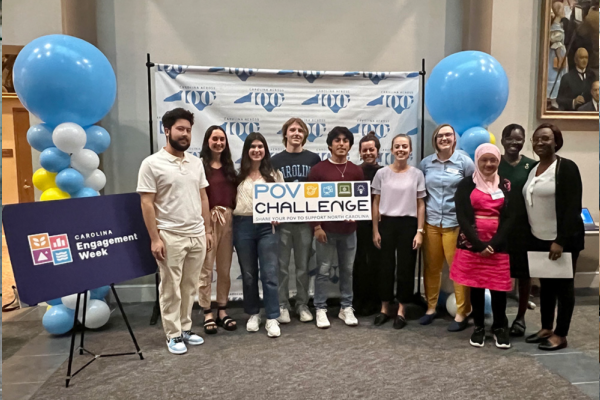Education
Navigating Learning Loss: Spotlight on Edgecombe County Schools
February 2, 2022
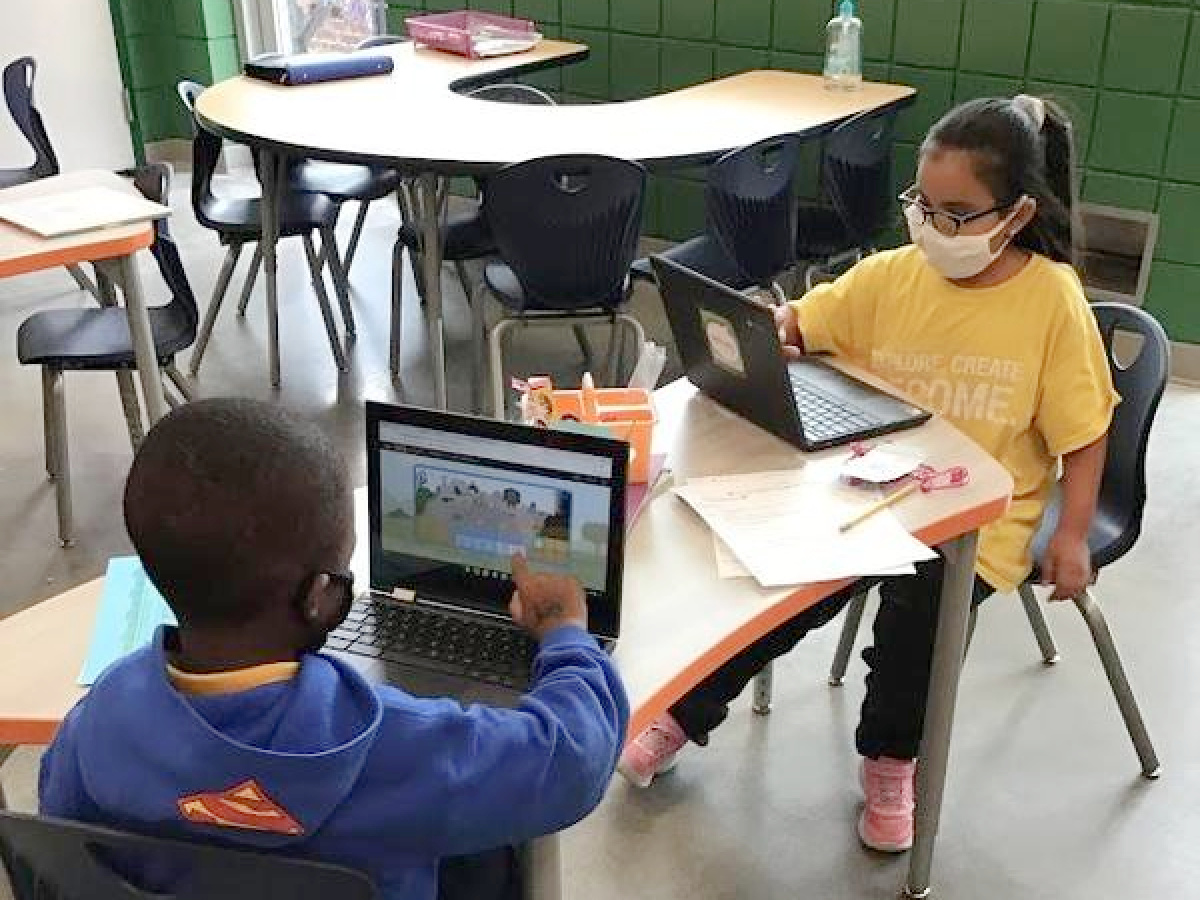
Photo credit: Princeville Elementary School
Our kids–we want them to be great, to become the future, and to find their passion. They’ve lost more than a year of in-person instruction, impacting not only their academics but their social skills.
According to data from the Carolina Across 100 survey, educational disruption was a top concern among respondents all across the state. Individuals shared deep worries about the impacts of learning loss as well as the serious toll the pandemic has taken on youth mental health. Respondents also expressed concerns about teachers – the stresses of teaching virtually, generally for the first time, as well as the burnout caused by staff shortages and increased workloads. On the other hand, some respondents also called out success stories of teachers and schools working hard on behalf of their students, and they expressed hopefulness about how the educational system can recover; maybe even how it can be better with increased teacher pay and more support for teachers and their students.
While the long-term impacts of this disruption are expected to be significant, Edgecombe County Public Schools is addressing its impacts with attention and innovation.
Dr. Valerie Bridges, Superintendent of Edgecombe County Public Schools (ECPS), started her career as an auditor. But, education and teaching are in her blood. Her mom was a teacher, and Dr. Bridges took evening courses in Teacher Education. While serving as an assistant principal, she decided to get her doctorate. After getting her doctorate, she was offered an administrative position at Guilford County Public Schools as an elementary school principal. It wasn’t until she was offered a job with the Central Office that she moved to Eastern North Carolina. She transitioned into Edgecombe County Schools after working in Washington County. She became Superintendent of ECPS in 2019.
“We have kids who want opportunities. They have never let us down. And, sometimes lack of funding and access restrict that. Every time we provide them with support, they take off. I trust my kids.”
Addressing achievement gaps pre-pandemic
ECPS has 16 schools, and “had students who struggled academically” before the pandemic. In 2018, ECPS had 6 schools that met or exceeded growth and 8 schools that didn’t meet or exceed growth. In 2019, ECPS had 12 schools that met and exceeded growth and 2 that didn’t.
“We doubled the number of schools that were meeting and exceeding growth. We were moving at an astronomical rate before 2020.”
ECPS had strong pilots and innovative programs in place to address achievement gaps before COVID-19. One such pilot was the Micro School where 15 eighth graders and 15 ninth graders were in an environment together that designed and executed passion projects. “We focus on helping those students unpack who they are, and how their interests can collide with curriculum and standards. It makes kids want to learn.”
The students from the Micro school outperformed every other kid in the district because their passions were seeded and connected to reading and math curricula. “It decreases discipline issues, and increases student engagement and connectedness.”
But, the pandemic created new challenges and exacerbated old ones. The main challenge: Eastern North Carolina didn’t have the broadband infrastructure to secure student success during remote learning. So, ECPS innovated.
New solutions for new problems during COVID-19
They piloted learning pods where small groups of students in emergency cases without learning access would gather safely in designated community areas to use the internet and learn together. This granted students the technological and human infrastructure to continue learning during the remote period.
ECPS also ran wifi-equipped buses from neighborhood to neighborhood that students could use to do their work.
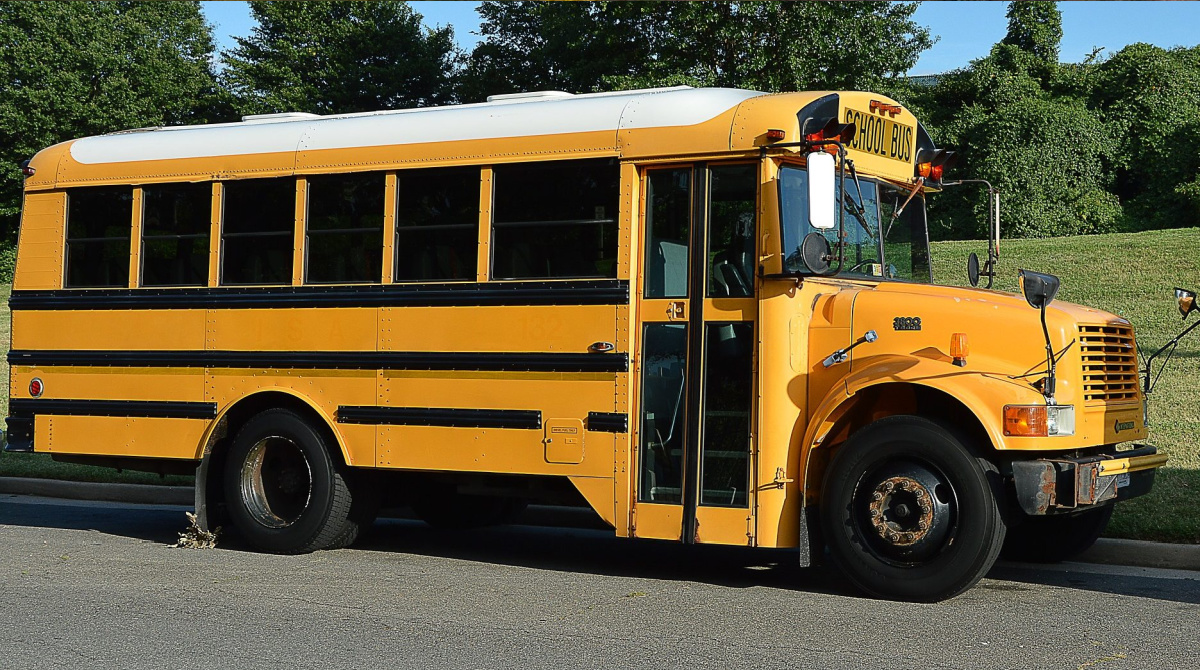
Photo credit: Pixabay
The District also used their resilience funding for summer learning opportunities. ECPS teachers and administrators knew one summer would not be enough, and committed to three summers of learning for students to build on their academic and social skills.
Additionally, the Chief Innovation Officer for the District gave each school $3,000 to spend on programs, innovations, and student support. One principal found that his students had to work full-time during learning to support themselves and their families. This meant their classes were pulled up on their phones while they were working, often service jobs. The principal negotiated hours with the students’ employers so that his students would have blocks of their day dedicated to learning without having to sacrifice important income. “He negotiated for students who were 16 or 17 years old and were afraid to work it out with their employer themselves.”
He then used the $3,000 to pay for extra tutoring and student support so that those students would get the assistance they needed to learn.
Over the course of the pandemic, ECPS has found that strategic plans developed by parents, teachers, students, and administrators coupled with teacher-to-teacher support across schools and experience-level build resilience in a school district. Moving forward, ECPS is continuing to focus on helping kids discover their own passions for learning, building support networks for educators so the district can grow stronger, and doing “whatever it takes” for students to succeed in Eastern North Carolina.
UNC-Chapel Hill’s Carolina Across 100 initiative is a five-year program charged by Chancellor Kevin Guskiewicz which will partner with communities in all 100 North Carolina counties to aid in pandemic recovery and help build resiliency. Learn more about the issues impacting our state and the people working to alleviate those issues by visiting our Stories page.



